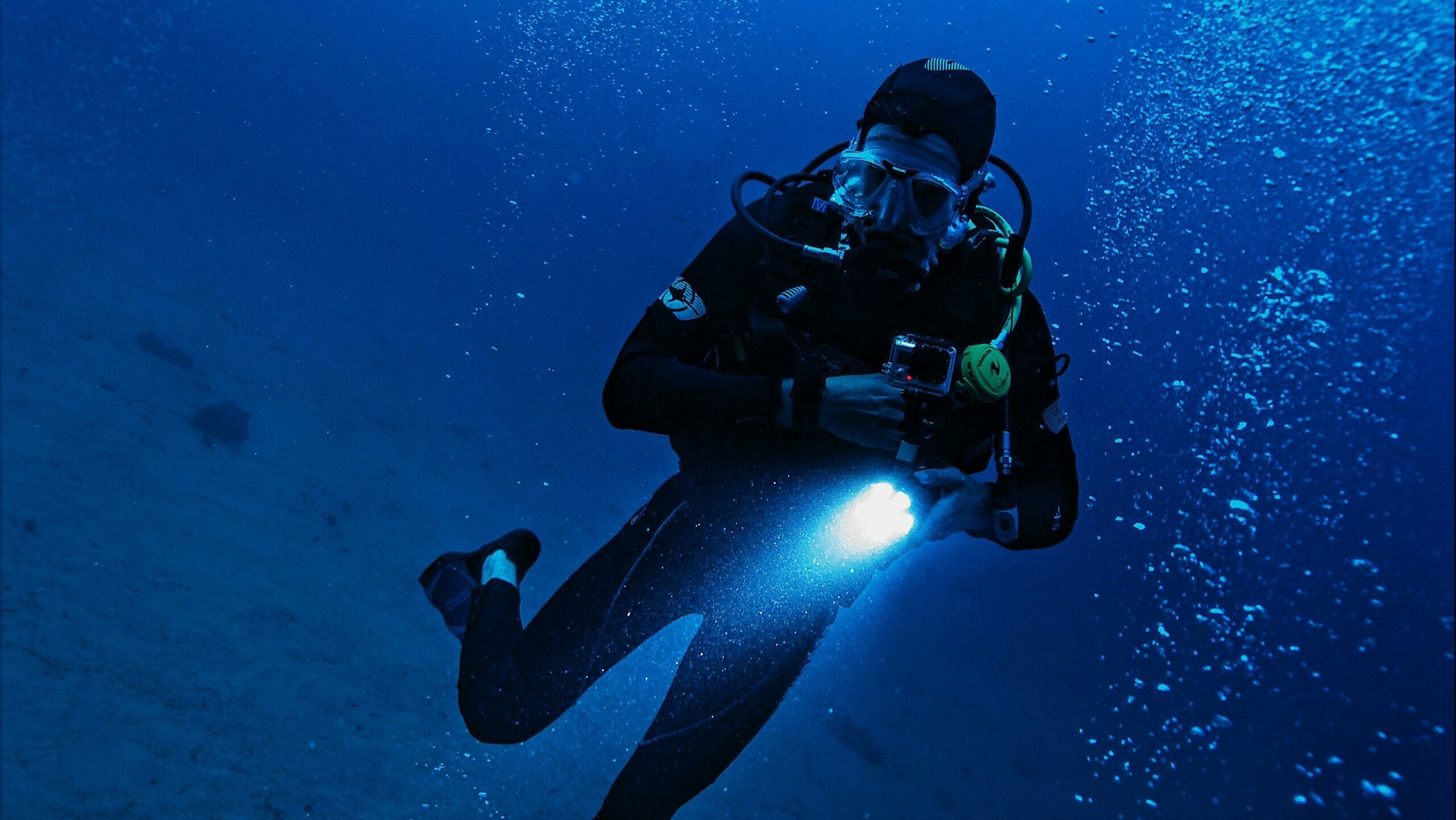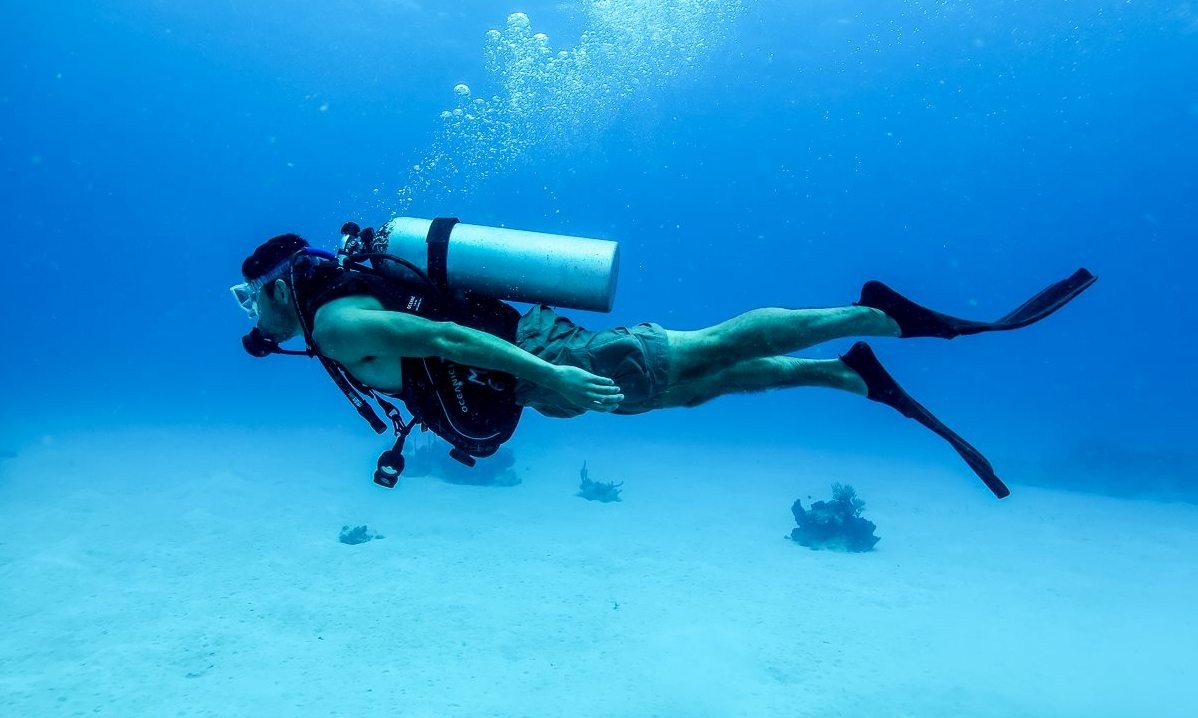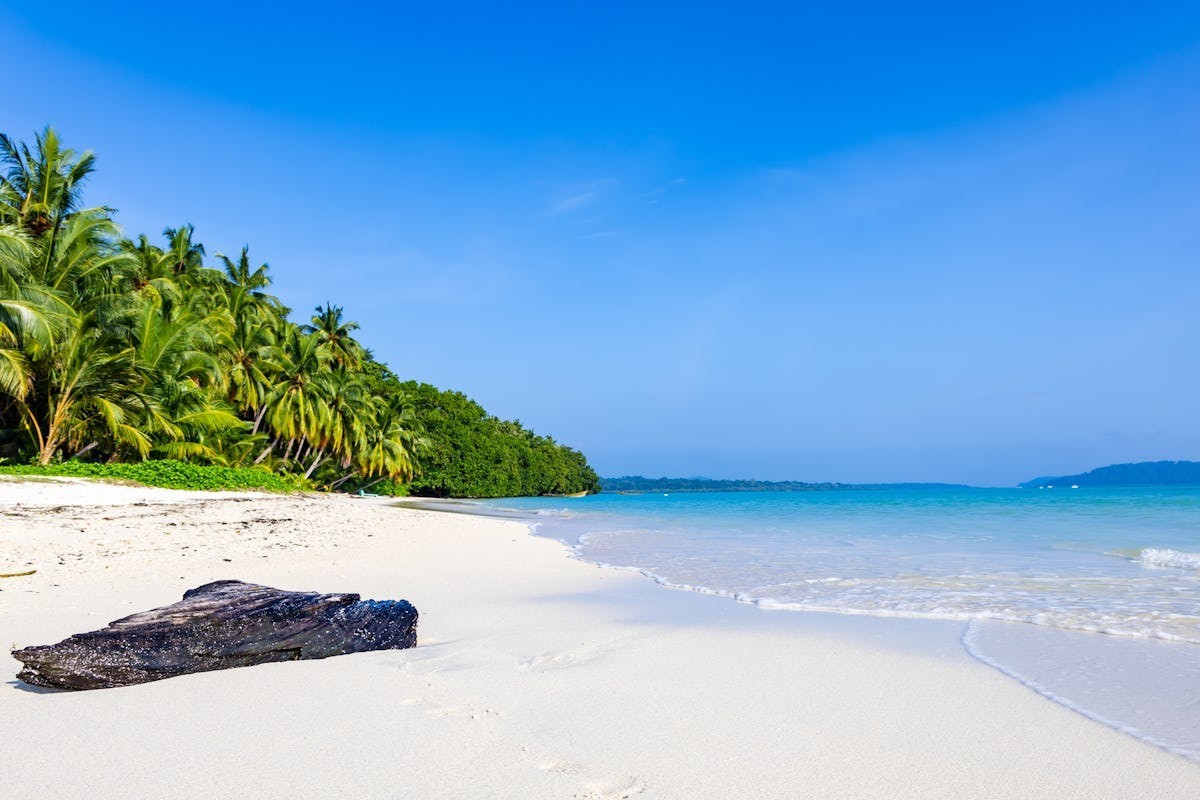Diving Sites in Port Blair



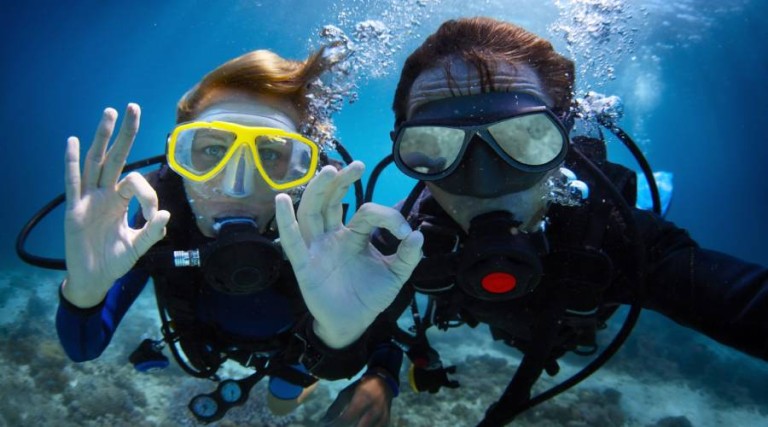
-
Aug 01, 2023
Are you a seasoned diver looking to enhance your underwater skills and experiences? The Professional Association of Diving Instructors (PADI) offers a myriad of speciality courses that can take your underwater exploration to the next level. As an experienced diver, you might be interested in trying out something new and challenging. Here are some of the best PADI specialities that are sure to pique your interest.
Best PADI Specialties for Experienced Divers: Enriched Air Diver (Nitrox) Specialty
Diving with enriched air nitrox lets you extend your no-decompression limits, which means more time underwater and shorter surface intervals – a boon for those looking to maximize their submersion time. This course will teach you the management of oxygen exposure and how to analyse oxygen content in your scuba tank.
Best reasons to do this course: Nitrox allows increased no-decompression limits. This means that it allows divers to stay underwater for longer periods, especially on repetitive scuba dives. Also, as less nitrogen is absorbed, your surface intervals – the time you must wait on the surface between dives – are also reduced. Less nitrogen uptake also provides an increased safety margin when it comes to decompression sickness.
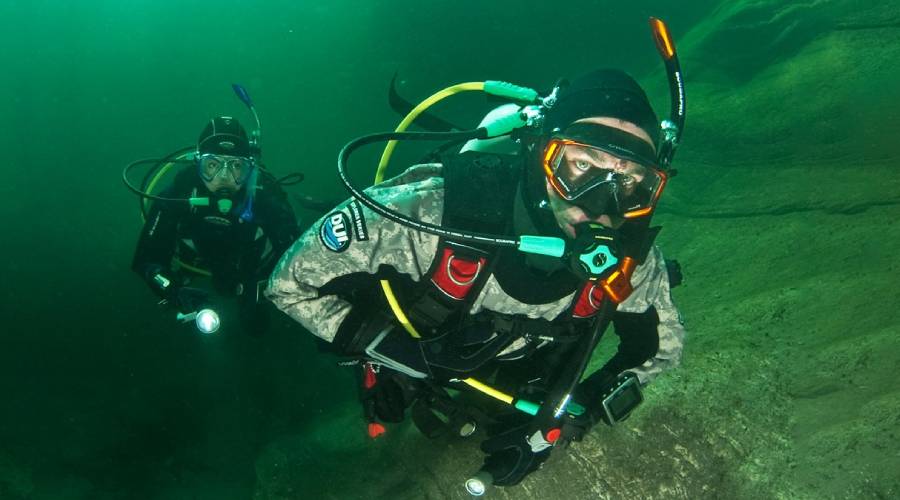
Course structure: The course consists of two main phases:
- Knowledge Development: This includes self-study of the course manual and DVD or eLearning, and covers topics such as the benefits and potential risks of diving with enriched air nitrox, how to analyse your scuba tank’s content, and how to set your dive computer for diving with enriched air. The component can take 2-4 hours to complete.
- Open Water Dives: Two open water dives are typically required to practice the skills learned in the knowledge development phase and to gain experience in using enriched air.
The course can typically be completed in as little as one or two days, making it a great option for those with limited time. However, this can vary based on factors such as class size and the individual's rate of learning.
Eligibility: To enrol in the Enriched Air Diver course, you must:
- Be certified as a PADI (Junior) Open Water Diver or have a qualifying certification from another training organisation.
- Be at least 12 years old.
How much does it cost: The cost of the Enriched Air Diver course can vary greatly based on the location and dive centre. It can range from approximately INR 10,000 to INR 20,000.
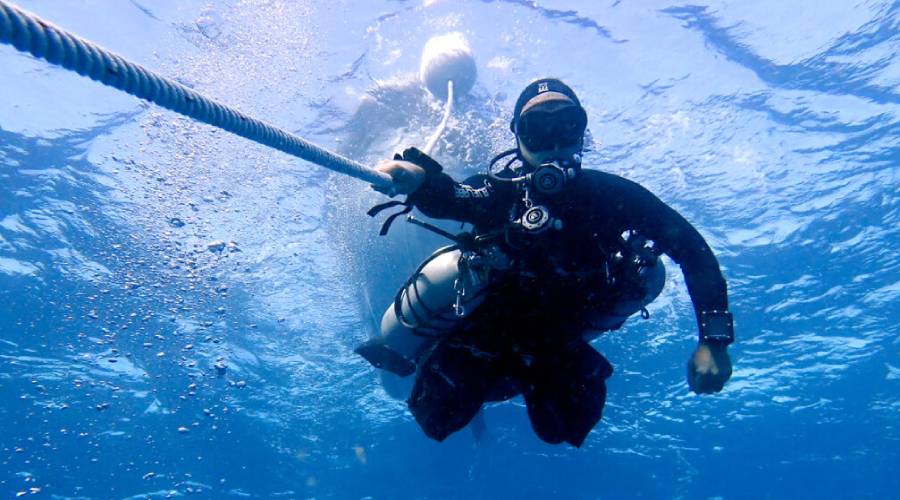
Best PADI Specialties for Experienced Divers: Recreational Sidemount Diver Course by PADI
The Recreational Sidemount Diver course by PADI offers divers a different way to streamline the water, enhance their diving skills, and provides a safer way to dive with an increased gas supply. This course focuses on teaching divers how to manage multiple tanks/cylinders utilising a sidemount configuration.
Best reasons to do this course: There are several benefits to taking the Recreational Sidemount Diver course:
Increased Gas Supply: Sidemount diving allows divers to dive with more than one cylinder, providing increased gas supply.
Enhanced Buoyancy Control: Sidemount diving can improve your trim control and buoyancy, allowing you to swim closer to the seabed or the cave ceiling without disturbing your surroundings.
Ease of Movement: The cylinders are mounted along your sides, reducing your profile and making it easier to move through confined spaces.
.jpg)
Course structure: The course consists of three main phases:
Knowledge Development: This includes self-study of the course manual and classroom discussions with your instructor to understand the principles of sidemount diving, including equipment considerations, sidemount diving procedures, and the benefits of sidemount diving.
Confined Water Dives: These are designed to get you comfortable with the new diving equipment and practice skills related to sidemount diving, such as handling multiple cylinders.
Open Water Dives: Over three dives, you'll practice your new skills, which can include gas management, buoyancy control, and different methods of handling multiple cylinders.
The duration of the Recreational Sidemount Diver course can vary, but typically it takes 2-3 days. This timeline is flexible and depends on your personal pace of learning and comfort in the water.
Eligibility: To enrol in the Recreational Sidemount Diver course, you must:
- Be a PADI Open Water Diver (or equivalent certification from another organisation)
- Be at least 15 years old.
How much does it cost: The cost of the Recreational Sidemount Diver course can vary based on the dive centre and location. The approximate cost in India might range from INR 15,000 to INR 30,000
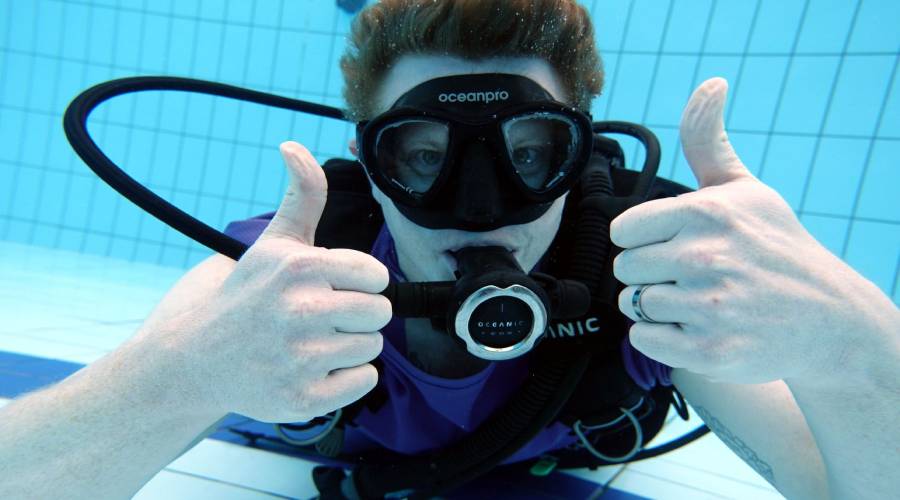
Best PADI Specialties for Experienced Divers: Wreck Diver Specialty
Are you intrigued by the history and mystery hidden beneath the waves? The Wreck Diver Specialty is just the ticket. It allows you to explore sunken ships, planes, and even automobiles. In this course, you'll learn about safety, potential hazards, and the legal status of cultural heritage sites, all while experiencing firsthand the unique habitat that wrecks provide to marine life.
Best reasons to do this course: One of the main attractions of wreck diving is the opportunity to explore history firsthand. As you navigate through a sunken vessel, you're essentially taking a journey back in time, each wreck possessing its own unique story. Furthermore, many wrecks have transformed into vibrant ecosystems, providing habitats for diverse marine life, making them a paradise for nature enthusiasts. These artificial reefs serve as a rich canvas for underwater photography, providing dramatic, fascinating subjects. Additionally, navigating a wreck enhances a diver's technical skills, including buoyancy control, spatial awareness, and planning.
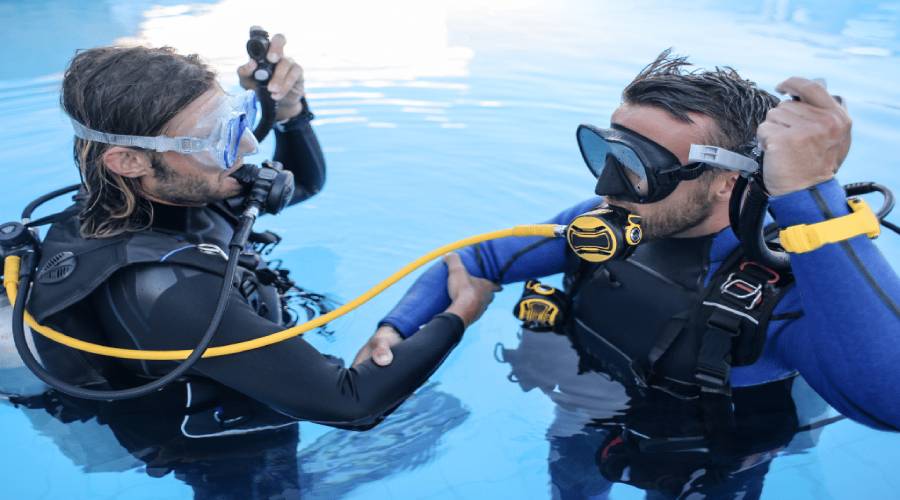
Course structure: The Wreck Diver Specialty course consists of:
Knowledge Development: This phase includes studying the course manual and DVD, where you will learn about the safety considerations for navigating and exploring wrecks, how to research and learn the background of your favourite wrecks, wreck scuba diving equipment considerations, and techniques for diving and exploring wrecks. The e-learning course is available on PADI and will take you around 2-4 hours to complete.
Open Water Dives: Over the course of four dives, you will learn to map and navigate a wreck, use penetration lines and reels to guide exploration, and perfect your techniques to avoid kicking up silt or disturbing the wreck and its inhabitants.
Eligibility: To enrol in the Wreck Diver Specialty course, you must:
- Be certified as a PADI (Junior) Adventure Diver or have a qualifying certification from another training organisation.
- Be at least 15 years old.
Cost: The cost of the Wreck Diver Specialty course can vary based on the dive centre and location. The approximate cost in India might range from INR 15,000 to INR 25,000.
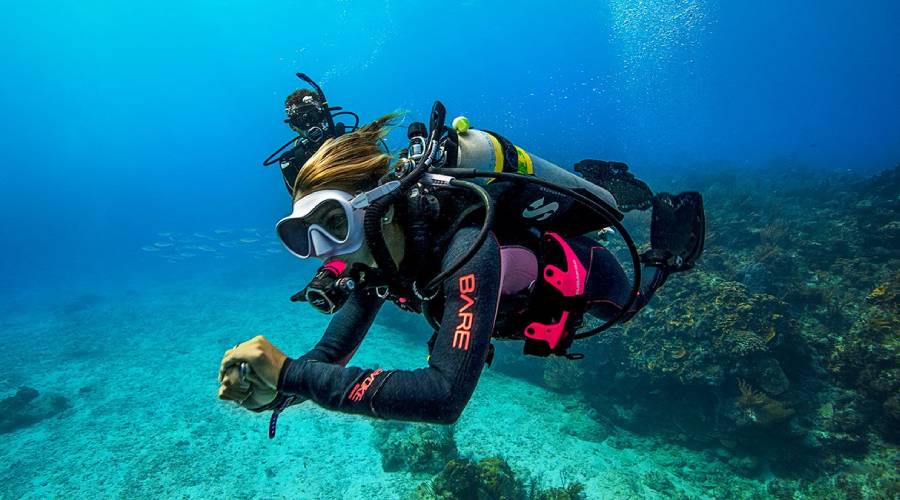
Best PADI Specialties for Experienced Divers: Self-Reliant Diver Course by PADI
The Self-Reliant Diver course by PADI is designed to equip divers with the skills and knowledge to dive safely and independently. While diving is typically a social activity with a buddy system, there can be circumstances where experienced divers may need or want to dive alone. This course provides the training and tools necessary to do so safely.
Best reasons to do this course: One of the most prominent advantages of the Self-Reliant Diver is that it will give you the confidence and skills to navigate underwater environments without a buddy when necessary or preferred. The course also significantly enhances safety skills, providing training to effectively handle potential problems or emergencies single-handedly. You will also see an improvement in their dive planning skills, as they learn to organise and conduct dives without relying on a partner.
.jpg)
Course Structure: The self-reliant diver course consists of:
- Knowledge Development: This self-study phase covers the principles of self-reliant diving, including risk management, dive planning, and emergency procedures.
- Open Water Dives: You'll conduct three open water dives where you'll apply the knowledge and skills you've learned. This includes demonstrating problem-solving without the assistance of a buddy and mastering air management.
Eligibility: To enrol in the Self-Reliant Diver course, you must:
- Be a PADI Advanced Open Water Diver (or have a qualifying certification from another training organisation)
- Have a minimum of 100 logged dives
- Be at least 18 years old.
Cost: The cost of the Self-Reliant Diver course can vary based on the dive centre and location. The approximate cost in India might range from INR 20,000 to INR 30,000.
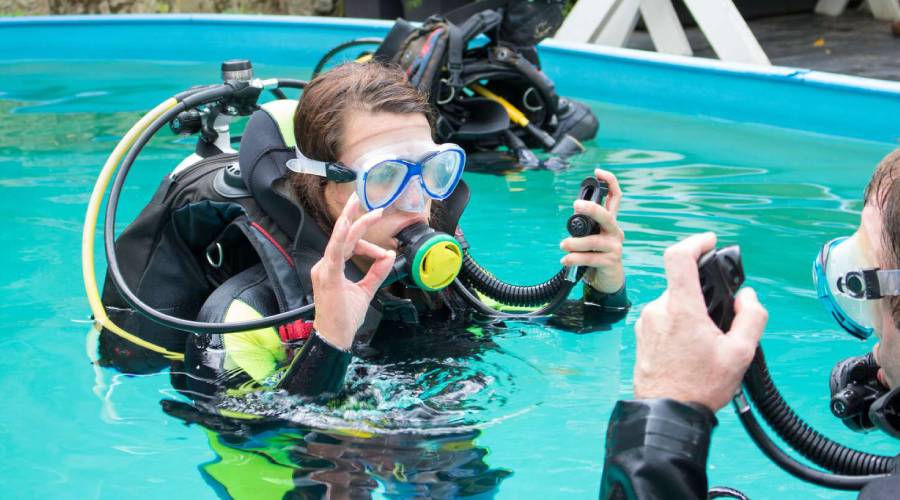
Best PADI Specialties for Experienced Divers: Search and Recovery Diver
The Search and Recovery Diver course by PADI is an intriguing course that enables divers to find and retrieve lost items underwater. It combines elements of fun and practicality, offering a set of useful skills for divers.
Benefits of the Course: The Search and Recovery Diver course offers a host of benefits:
Skill Enhancement: It enables divers to enhance their navigational skills, improve their buoyancy, and gain experience in rope handling.
Preparation for Emergencies: The course also prepares divers to respond in situations where an important piece of equipment is lost underwater.
Course Structure: The Search and Recovery Diver course consists of:
- Knowledge Development: You will learn the basics of search and recovery diving through self-study materials and instructor-led sessions. This includes search patterns, rope-handling skills, and how to recover small to medium-sized objects using different lifting devices.
- Open Water Dives: Over the course of four dives, you'll put into practice the techniques and procedures you've learned, including conducting search patterns and lifting objects.
Eligibility: To enrol in the Search and Recovery Diver course, you must:
- Be a PADI (Junior) Advanced Open Water Diver (or have a qualifying certification from another training organisation)
- Be at least 12 years old.
Cost: The cost of the Search and Recovery Diver course can vary based on the dive centre and location. The approximate cost in India might range from INR 15,000 to INR 25,000.
Diving Sites in Port Blair
Diving Sites in Havelock Island
Diving Sites in Neil Island
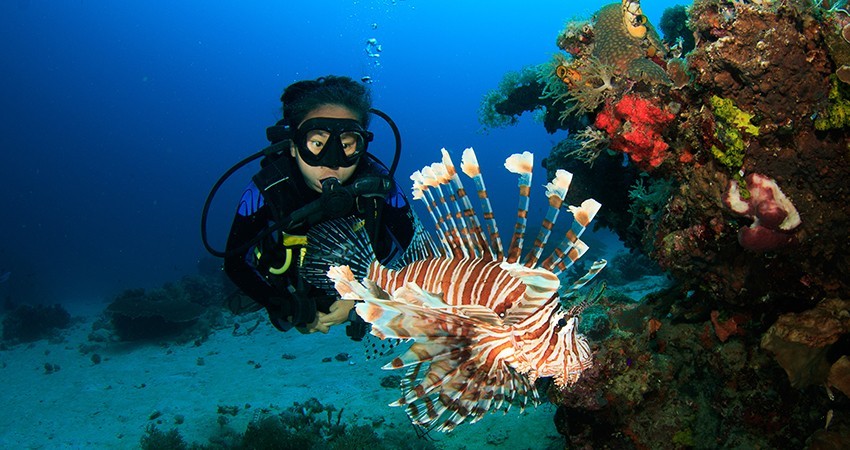
.jpg)
